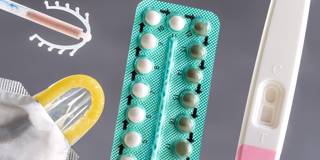A quarter-century ago, at the International Conference on Population and Development, 179 governments pledged to provide information to help young people make “responsible” decisions about sex and sexuality. It is time to implement that pledge, by giving teens the information and safe spaces they need.
NEW YORK – When I was a bright-eyed eighth grader in my native Sri Lanka, I couldn’t wait for my first sex education class. In our early teens, my classmates and I were as curious as we were clueless about sex and sexuality. Yet, instead of receiving reliable answers to pressing questions about our bodies, relationships, and sexuality, we were simply handed a book, told to read a particular chapter, and left to figure things out on our own. Millions of young people around the world have similar experiences, often with serious adverse consequences.

NEW YORK – When I was a bright-eyed eighth grader in my native Sri Lanka, I couldn’t wait for my first sex education class. In our early teens, my classmates and I were as curious as we were clueless about sex and sexuality. Yet, instead of receiving reliable answers to pressing questions about our bodies, relationships, and sexuality, we were simply handed a book, told to read a particular chapter, and left to figure things out on our own. Millions of young people around the world have similar experiences, often with serious adverse consequences.